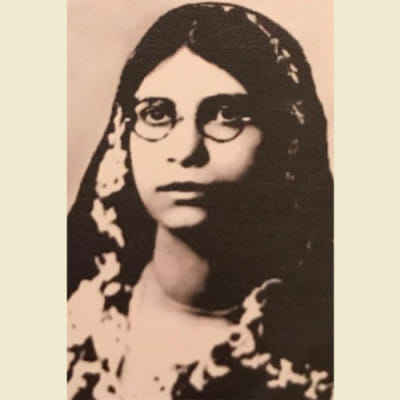Begum Sufia Kamal: A moral hero

Today, after a period of hiatus, I have once again taken up my pen (metaphorically) to remember and celebrate a hero—a woman of courage and integrity who changed the world, not with fire and fury but with her soft touch. As I began to write this piece on the birth anniversary of our dear Sufia Khalamma (writer and activist Begum Sufia Kamal to the world), I was conflicted over a question that I have been asking myself of late. Can one person spark a social change with far-reaching and long lasting implications?
I found my answer in the sad death of George Floyd, killed mercilessly by a policeman in Minneapolis, USA. One black life ignited not only countrywide protests, but its reverberations were felt around the globe. However, there are many silent heroes who also make a difference. They live ordinary lives—they are loving parents and spouses, dutiful siblings and sincere friends, yet they leave their indelible mark on communities, societies and countries. I call them our "moral heroes".
For me, Begum Sufia Kamal was one such moral hero. Being a close friend of the family, I spent many evenings on her front porch with her daughters, consuming numerous cups of tea and snacking on samosas and biscuits. Her kind demeanour and simplicity touched my inner core. I was never overawed by her persona as a notable author or a national leader, because Sufia Khalamma never created a distance between her and "us". This to me was her greatest quality—she was extraordinary in her "ordinariness".
Reflecting on the time that I spent with her, I wonder why I never asked her to share her experiences of how she evolved from a simple girl born in Barishal to an agent of change who espoused women's rights and social equity for all. I regret that I did not learn the many lessons she could have taught me. But then, she was the kind of person who impacted others through her precept and stoic lifestyle. I marvelled at her simple manner of dressing in a white cotton sari. She once mentioned casually that this was the result of her short meeting with Mahatma Gandhi. I also wonder how she acquired that vast sea of knowledge about English and Bangla literature, despite the fact that she never attended formal school. Was it her association with Begum Rokeya that inspired her to be a self-learner?
These are questions I never asked because there was so much about Sufia Khalamma that I took for granted. In many ways, I also think the answers to these questions may be irrelevant because she was not of the brand of leaders who choose their path—she was chosen by destiny. She worked for Hindu-Muslim unity during the Partition of India. Her activism continued in 1952, during the Language Movement and in 1961, when the Pakistani government bannedthe songs of Rabindranath Tagore from the media. She led the women of East Pakistan during the mass uprising against the Pakistani military in 1969. Later, she made women's rights her top priority and headed Bangladesh's largest women's organisation, Mahila Parishad, for many years. And yet her social work was only a part of her life, for she was known to the world as a writer, having published several short stories and poems, as well as her memoirs.
Khalamma's many achievements, if I were to list them, would take up this entire column. But my intention is to highlight her humane side, which I experienced intensely—so much so that it changed my entire perception of feminist movements and freedom struggles. What struck me the most was the simplicity of her moral response to a true cause. She never weighed the costs and benefits or entered into useless debates—she just plunged into the movement if she believed in it. But once she became a part of it, she gave it her all. Risks were ignored and consequences went unweighed. It was done with an effortless elegance that is hard to explain. She embodied what Mother Teresa once said of her own work: "What I do is as simple and common as the laughter of a child."
When Khalamma chatted with us, her self-identity was fused with ours, yet she was perfectly at home in performing great acts that we would hesitate to take on. I saw her walking in protest marches and sitting in musical concerts with equal ease. She would be frying pieces of hilsa fish in her kitchen one moment and within minutes, she would be sitting on a cane chair on her front porch with a national leader, the two discussing an emerging political crisis. The transition was so seamless that I never questioned how she did it.
As I remember Sufia Khalamma on her birthday, I salute her in humble recognition of the fact that we gave her so little in return for what she gave to our nation and to the cause of women. But then, that is how she wanted it to be—her efforts were built around "healing some rupture in society, reconciling differences, bringing the unlike together, a move from fragmentation to wholeness". And never expecting anything in return. Her reward was to see that humanity remains connected in empathy—a message that has become so relevant in the time of the coronavirus.
Khalamma, let me end by saying that you were not part of a struggle. You were the struggle. You were so human, yet you created a feeling of innate humanity in those around you. At a personal level, you touched me at a very sensitive stage of my life and did to me what "spring does with the cherry trees."
May you rest in eternal peace.
Milia Ali is a Rabindra Sangeet exponent and a former employee of the World Bank.

 For all latest news, follow The Daily Star's Google News channel.
For all latest news, follow The Daily Star's Google News channel. 



Comments